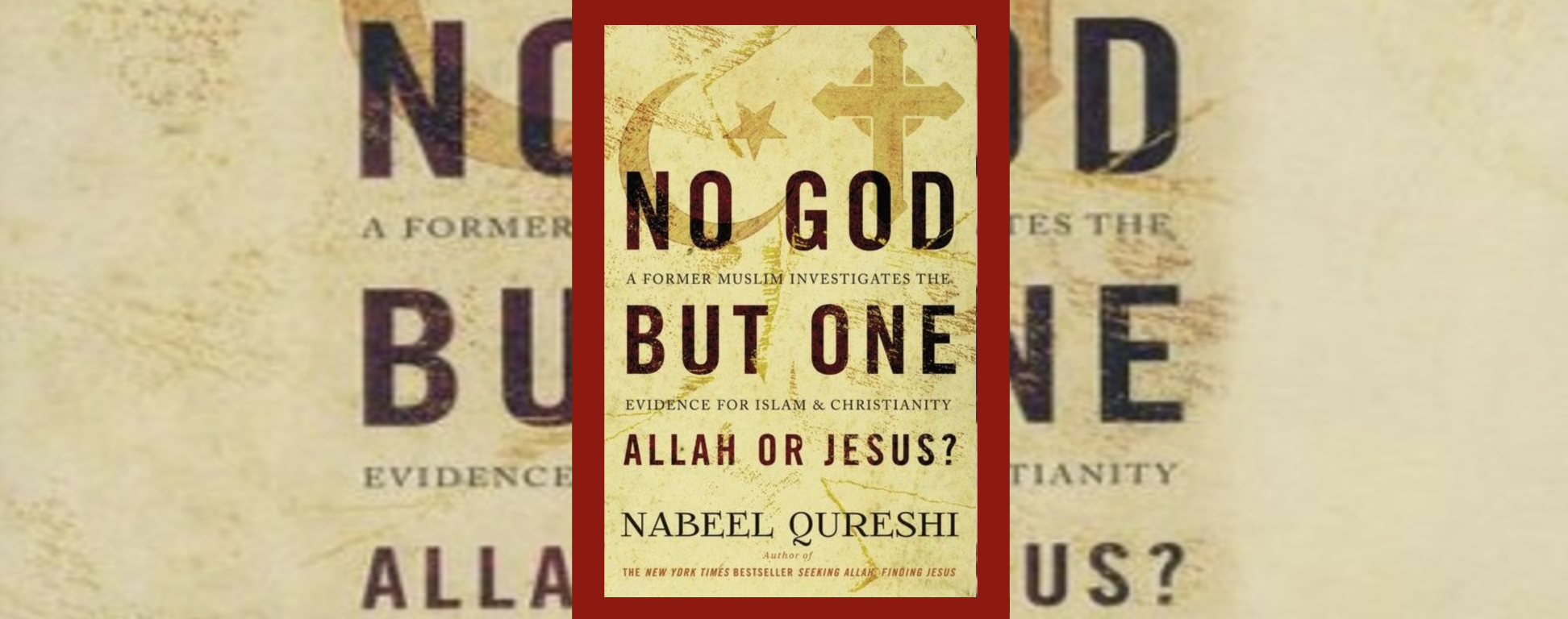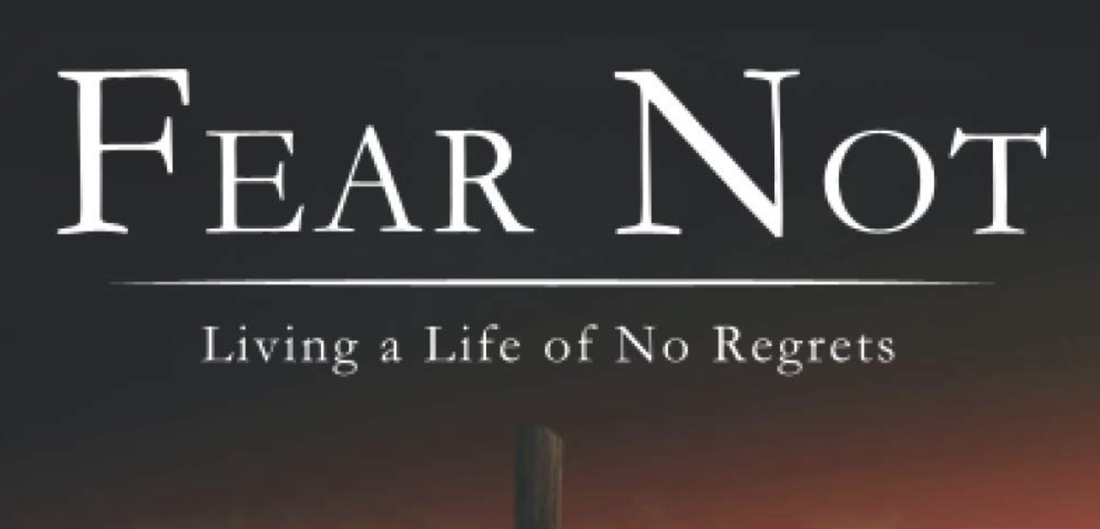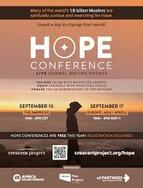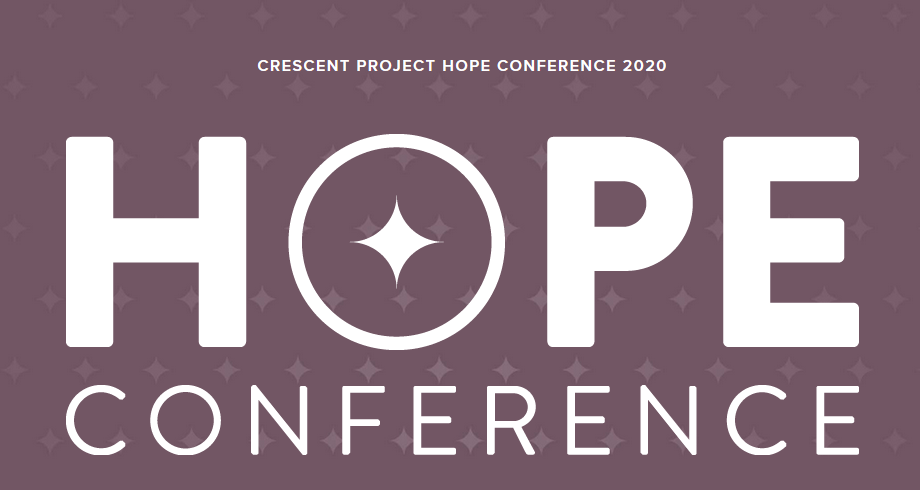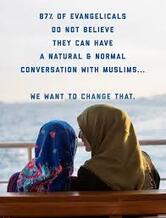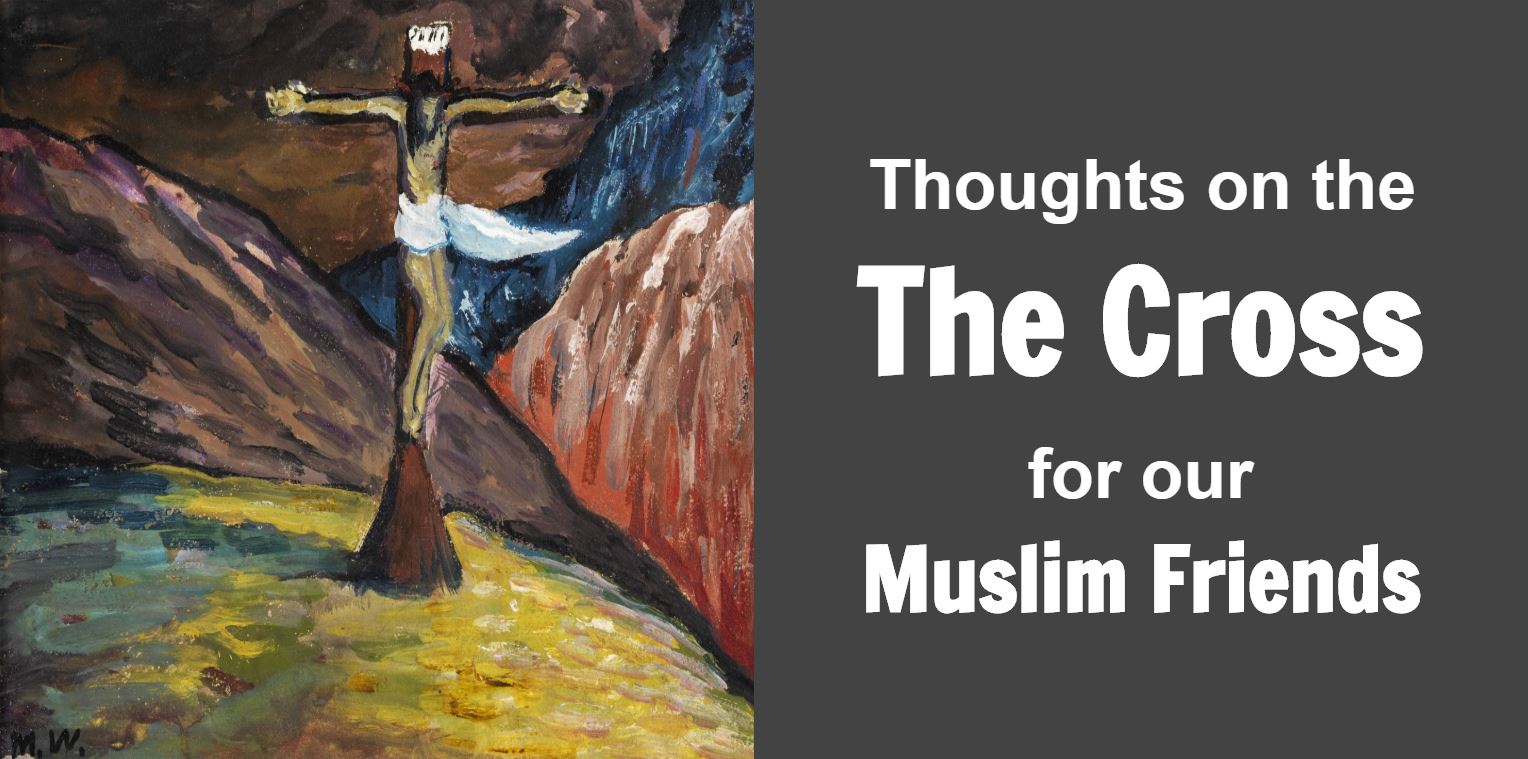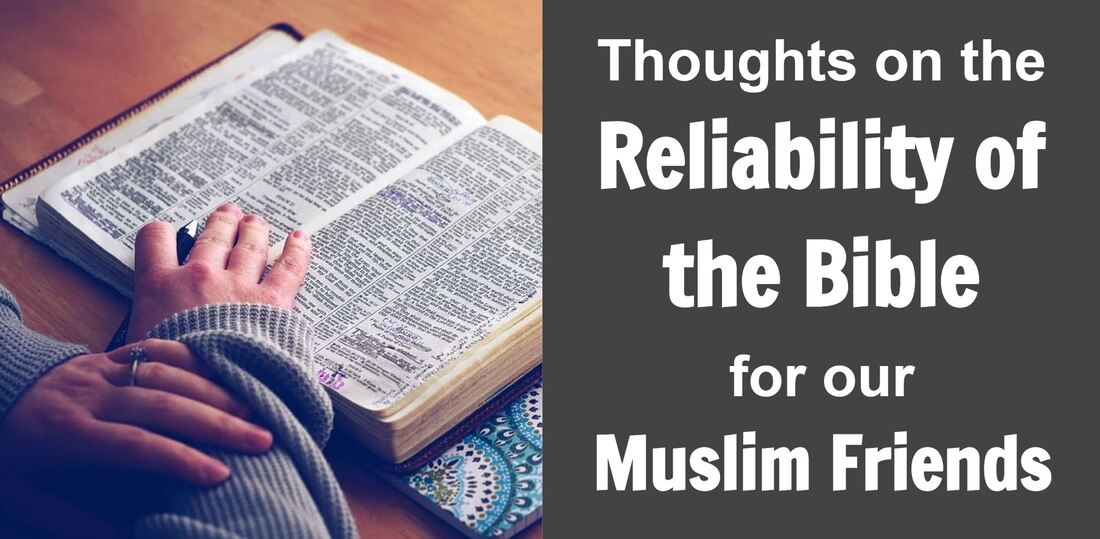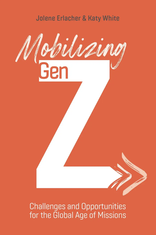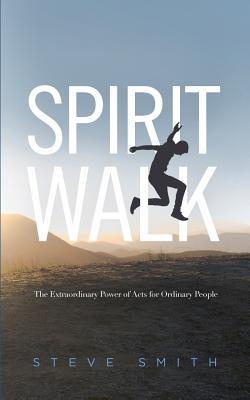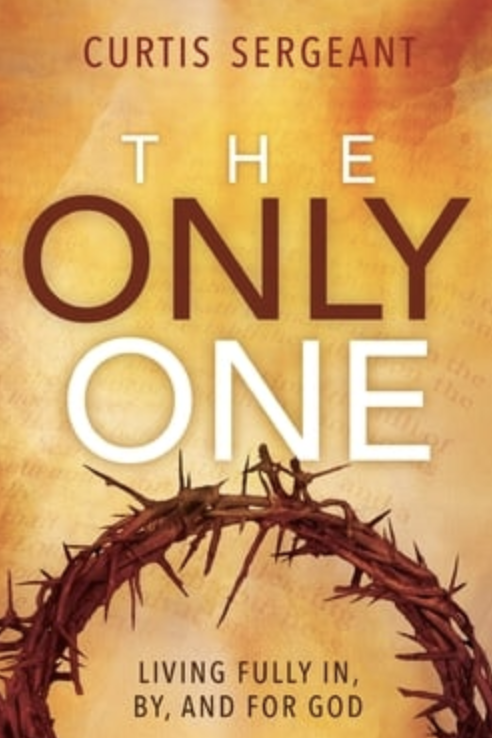|
Ramadan is an important month in the Islamic lunar calendar because it is the month in which - according to Islamic theology - the first revelation of the Koran was revealed to the Prophet Mohammed. During Ramadan all Muslims across the globe are required to abstain from all earthly pleasures - food, water, cigarettes, sexual relations - from sun up to sun down. Fasting like this during Ramadan is one of the five pillars of Islam and it is one of the most important religious and cultural holidays for Muslims. This year Ramadan runs from March 22nd through April 21st. Ramadan is a unique opportunity to pray for our Muslim friends and the Muslim world. There are a host of great resources to help Christians and their churches dedicate time to prayer for the Islamic world during this month. 30 Days of Prayer Since 1993, the 30 Days of Prayer for the Muslim world has been a helpful resource to guide prayers throughout the month of Ramadan. Available in booklet form or as a PDF, you can order your prayer guides at: 30daysprayer.com/booklets/ Pray4Movements The Pray4Movements team have partnered with churches and missionaries to create 24/7 prayer for individual countries and regions during the month of Ramadan. This is a great opportunity to partner with the global body of Christ to see non-stop prayer for Muslims during the month of Ramadan. We've partnered to form the Pray4Turkey initiative through the month of Ramadan and would love to invite you to sign up for one fifteen minute slot of prayer or a daily fifteen minute slot. You can sign up at: pray4turkey.pray4movement.org You can find the complete list of pages here: pray4movement.org/ramadan-2023 Prayercast Prayercast creates powerful videos that will help you and your church pray for the Muslims world. They have videos for nearly every country on earth as well as a whole section of videos focused on raising up prayer for the Muslim world. You can watch the Ramadan prayer video below but here is the link to all the prayercast videos focused on the Muslim world: prayercast.com/love-muslims-home.html When God is about to do a powerful thing, he always sets his people praying. -Johnathan Edwards Prayer is an important work in seeing the great commission fulfilled. These are just three ways you can be involved. Sign up for one today and share this post with a friend. We need the whole body of Christ to join in this important time of prayer. Did you find this post helpful? Share it with a friend!
0 Comments
If you have been involved in ministry to Muslims for more than a few months, you’ve undoubtedly heard of Nabeel Qureshi. His journey from devoted Muslim to apologist for the Christian faith was masterfully documented in his New York Times best selling book Seeking Allah, Finding Jesus. His dedication to pursuing and proclaiming the truth with grace and humility shows up in his hundreds of talks, interviews and debates which can be accessed with a simple search on Youtube. His writing is generous, never belittling the Muslim worldview but giving it a fair response as he did so well in his short book Answering Jihad. Nabeel sadly was diagnosed with advanced stomach cancer in 2016 and died a year later at the age of 34. C. S. Lewis famously said that, “Those of us who have been true readers all our life seldom fully realize the enormous extension of our being which we owe to authors.” The psalmist exhorts us to “Sing of the Lord’s great love forever; with my mouth I will make your faithfulness known through all generations (89:1).” One of the gifts that thinkers and writers like Qureshi leave to all generations is the gift of their books. No God But One: Allah or Jesus? is one of those important books that will indeed be a gift to generations of Christians as it makes His faithfulness known. “No God But One: Allah or Jesus? addresses the most important questions at the interface of Islam and Christianity: How do the two religions differ? Are the differences significant? Can we be confident that either Christianity or Islam is true? And most important, is it worth sacrificing everything for the truth?” With a description like the one above, I came to this book expecting an academic tome, something created for the intellectual heights of academia or those dedicated missiologists who read everything they can get their hands on. I was therefore pleasantly surprised to find that Nabeel's voice in the book had stayed true to his voice in both of his other books: winsome, accessible, narrative and generous. I think this highlights one of Qureshi’s greatest gifts to the church: His ability to speak with authority and deep knowledge about complicated and complex topics in ways that we can all understand. He is engaging without being flippant, compelling without being preachy and committed to the truth without being pedantic. No God But One: Allah or Jesus? Is written in two main sections which each explore two important questions through five different parts. The two questions are:
With these questions framing up the discussion, Nabeel makes a rock solid case for the claims of the Biblical understanding of Jesus and graciously pulls apart the Islamic arguments both for Islam and against Christianity. At nearly 300 pages, this is an in depth study of the topic. Just about everything a person has heard or wondered about Islam is covered. A few years ago I was sharing with a group of high school students who were reading Kate McCord’s book, In the Land of Blue Burqas. Most of them were not interested in ministry to Muslims but all of them felt that they had grown in their understanding of the God of the Bible because for the first time, they’d seen their God side by side by the god of the Quran. The distinctions they were sensing brought about a deeper understanding of and appreciation for the God they worship. With No God But One: Allah or Jesus?, Nabeel Qureshi gives readers a chance not only to learn about Islam, but in so doing, he invites readers to grow in their own understanding of and appreciation for the God they serve. Because of this, I want to encourage everyone who follows Christ to read this powerful book. * links to books are affiliate links Did you find this post helpful? Share it with a friend.  Sometimes you need a book that, through reading a chapter a day, you receive encouragement in your faith. Fear Not: Living a Life of No Regrets was just that book for me this past summer. Author James Cha weaves captivating stories, Biblical truth and a lifetime of wisdom into this great devotional. James and his wife Faith spent over a decade serving the Lord in Central Asia, saw more than 120 Muslims come to faith in Christ and experienced their own share of persecution. It is because of these experiences and James' deep knowledge of the Bible that Fear Not is an excellent resources for any believer wanting to grow in their faith. It will be an especially helpful resources for any interested in moving to the Muslim world to serve the Lord. The book covers a myriad of topics all of which work toward helping the reader to respond to the call of Christ in obedience and surrender. It was incredibly encouraging, filled with exhortation and I would recommend it to anyone who wants to grow closer to Christ and learn to be a more active participant in His kingdom mission. Fear Not: Living a Life of No Regrets *Links to book are affiliate links. While coronavirus has caused a lot of disruption in our world it has also created some great new opportunities. Crescent Project's annual national conference has needed to adjust and has moved online. Introducing the Hope Conference. More accessible than ever and FREE, Hope Conference will happen Thursday September 10th from 9 am - 2 pm central time. The event will feature top notch speakers, opportunities to interact with mission mobilizers, missionaries, former Muslims and Crescent Project staff and all of this will happen online. This will be a great opportunity to be encouraged and equipped to join the work that God is doing in the Muslim world. Watch alone or gather some friends!
 One of the number one reasons former Muslims give for leaving Islam and coming to faith in Christ is that they met a true follower of Jesus. The challenge is that the vast majority of the 1.8 billion Muslims in our world today live in places where there are no followers of Jesus. In Turkey for example, a nation of over 80 million, fewer than 10,000 have left Islam to follow Christ and eighteen of the country’s 81 provinces have no known churches. Most Turks will not hear a clear presentation of the gospel this year - perhaps not in their lifetime. They won’t have a friend who is a follower of Jesus. It is much the same for Hindus, Buddhists and the followers of the world's many other religions who live in what missiologists call the 10/40 window. 95% of the world's unreached people groups live in the 10/40 window. Globalization is bringing the people of the world to countries where there are churches in every neighborhood and Christians all around them. Technology is opening up the world to communicate with one another in ways never before imagined. English is the new lingua franca and it is easier than ever to connect with a unreached peoples - and their families - and to be the first true follower of Jesus they have ever met. Covid-19 is a terrible disease that is bringing and will continue to bring great loss to our world. But it is also bringing opportunity. Children across the globe have been sent home from school. They are isolated and oftentimes alone and are spending their time online. Your children are home. Muslim children are home. Hindu children are home. Buddhist children are home. What would it take to help your child be the first real Christian one of these children has ever met? What would it look like if you could help your child build a friendship with a child their same age and gender from another country? There are dozens of online communities working to connect children with other children and adults with other adults through the age old practice of pen pals. Some help you connect through traditional mail. Many more are helping make connections through email. I want to invite you to consider praying as a family about becoming pen pals with new friends in the Muslim world. Imagine if each member of your family were connecting with people in a Muslim majority country. Imagine how much you would learn about the world. Imagine the encouragement you could bring to an individual who is also living through this current world crisis. Imagine the conversations about Jesus that just may happen as you hear the story of your new friend’s life and they hear yours. Getting Started I want to first and foremost, encourage you to do this as a family. Your kids are going to make easy connections as they share about what they do for fun but depending on their age, they’ll probably need some coaching. And you, mom and dad, are going to need your kids to keep you accountable to continue to reach out and connect through email or regular letters with new friends. Be a family on mission together! When I first helped my son with pen pals in Turkey and Indonesia he was twelve. We went onto the website Pen Pal World together and I helped him set up his profile. We prayed about what countries to look into and then searched together for boys age 12 that he could connect with. He reached out to two and they both responded. Soon they were exchanging emails. They were super simple. At one point the thread of emails was over 70 replies between the two of them. One would ask a single question - “Who’s your favorite soccer team? - and the other would respond “Real Madrid,” and then send off a single question of their own, “What’s your favorite movie?” It felt a little ridiculous but they were two twelve year old boys getting to know one another. This boy happened to live in Indonesia. I monitored and checked in with my son regularly, encouraging him and helping him know how to proceed. Below are three sites through which you can find pen pals in the Muslim world. All three have their users create profiles which include the user’s gender, age and country. Be sure and help your children find friends who are the same age and gender - and that goes for you too! And then pray about what countries in which you would like to make connections. It’s a great reason to explore and learn about countries within the 10/40 window. A great resource to tune up your heart for these nations is Prayercast where you can learn about every country in the world. https://www.prayercast.com/ And a great resource to help you and your family learn more about Islam and how to share the love of Jesus with Muslims is the Bridges study. https://www.crescentproject.org/bridges Interpals Interpals started in 1998 and has been helping people make new friends across the globe ever since! You can sign up for free. You’ll need to create a profile and then you can search the profiles of others to find someone to write to. You can start by messaging on the Interpals website. This will all happen on their on-site inbox, which means you won’t need to give out personal information at first. Take some time to get to know the person you are connecting with. You will want to switch over to email though so that your conversations can happen more naturally. https://www.interpals.net/ PenPal World Like Interpals, PenPal World has also been active since 1998. Like Interpals, you will sign up, build a profile and search the profiles of others, then communicate within a PenPal World inbox. They also have some helpful safety features. They manually verify every single profile photo, and they enable minors to block all adults. http://www.penpalworld.com/ Global Penfriends Global Penfriends was established in 1995, and is a safe platform that runs in a very similar way to Interpals and PenPal World. It is completely free, and you set up a profile, search for others, and have a secure inbox. Unique to Global Penfriends is their My Post service, which enables members to send snail mail to each other via the internet! You can use this service to send any written correspondence: letters, postcards, birthday cards, invitations, etc. https://www.globalpenfriends.com/ Parents, you will want to look at each and see which suits your needs best. Please remember that these sites are secular sites open to anyone with an email address. They are for profit and so it is in their very best interest to make the sites as safe as possible. That said, it is up to you to stay safe and remain vigilant. You and your children have an opportunity to build real friendships and to be Christ’s ambassadors in a lost and broken world. And you can do it together! Learn more about unreached people groups and the 10/40 window in the short video below. Sahara Challenge is an important training opportunity for anyone wanting to go deeper in their understanding of how to better minister to Muslims. It is Crescent Project's top tier training event and because of Covid-19 will this year be offered online for the first time ever, making it more accessible than ever before. Included in the Online Event:
Give me six hours to chop down a tree and I will spend the first four sharpening the ax. * Information taken from the Crescent Project website. Laylat al-Qadr - the night of power - is the night during the month of Ramada that Muslims celebrate the receiving of the first of the Quranic revelations by Mohamed. For Muslims it is a sacred night, perhaps the most sacred night in the Islamic calendar and is a night spent on tasks such as prayer, reciting the Quran and spending as much time as possible at their local mosque. It is believed that worship and prayer on this night is more valuable than one thousand other nights of worship and prayer. It is a night when the hearts and minds of Muslims all across the world are focused on one thing: trying to please God. And it is a night that we as followers of Christ can gather around our Lord's throne of grace, asking God to make Jesus known to Muslims all across the world. This year, Laylat al-Qadr falls on Tuesday, May 19th. Will you set aside time this year to take action? Will you do one thing to join God in His global purpose to see Muslims worshiping Him? WILL YOU LEARN MORE? Stop by the Prayercast page, watch the prayercast video and read more about the Night of Power. WILL YOU PRAY? Will you set aside time on Tuesday, May 19th to pray for your Muslim friends and Muslims in general. Pray that on this night:
WILL YOU FAST? Consider fasting on Tuesday May 19th as you pray. Skip meals from sun up until sun down. Fast for 24 hours or more. Maybe fast from media or your smartphone. Give something up as a way to focus your prayers during this day. Will you do something this year to join God as he calls Muslims to himself? I remember growing up, my grandmother would tell stories of the waning days of the Great Depression and the first years of World War II. I was captivated by the way she and the whole country seemed to respond to the crisis of war and depression. She told stories not only of the young men who willingly signed up to defend freedom but also of the ways those who stayed behind stepped up to serve, sacrificially rationing and growing gardens and doing anything they could to support the war effort. Those stories left a longing in me to live a purposeful life of sacrifice and meaning. The Covid-19 pandemic is our crisis. For many of us, we are looking for purposeful ways to respond. Somehow, “stay at home and watch Netflix” just doesn’t seem all that meaningful, even though we know it is the best thing to do (at least the stay at home part). As followers of Christ then, what are the ways we can respond that are meaningful and in partnership with the mission of God. Nearly six billion people in our world do not yet call themselves Christians and over two billion don’t even have access to an opportunity to hear the gospel. Here are five different ways you can be a part of God’s global mission, even as you stay at home. LEARN As the global pause button continues to be depressed, take the extra time you have to learn more about God’s mission and how you can be a part of it. Here are several ideas:
ENCOURAGE Isolation and loneliness are real issues in a time of pandemic. I trust you are already doing your part to discover creative ways to encourage those in your neighborhood, your church family and your immediate family. But missionaries and our global brothers and sisters in Christ are also isolated in times like these. Here are a few ideas for encouraging them.
PRAY Too often, followers of Jesus underestimate the power of prayer. It seems that in the pandemic and the forced slowing of life, prayer would be the greatest response would could give to the Lord. Here are a number of resources to help you pray more.
GO Mission trips have been canceled, missionaries have had to return from the field and stay at home orders abound across the globe and yet the opportunity to go into the Muslim world has never been greater. Because of the Covid-19 pandemic, more people on every continent are home bound than ever in world history. They are isolated, alone, and wondering what tomorrow will hold. Hundreds of thousands of young Muslim men and women who speak English are also sheltering in their homes, smartphone in hand, surfing the Internet in search of answers, hope and friendship. What if they met you? Volunteer with Embassy and they will teach you how to connect online with Muslims in difficult to access nations. You will almost certainly be the first follower of Jesus they have ever met. Sign up for a free one hour introductory training or stop by the Embassy website to learn more. FILTER We live in a media saturated world. Messages come fast and furious from every device we own and many are wondering if we can trust any of the news we hear. How do we filter through all the nose? The reality is that we are all being discipled - being formed - by the messages that dominate our days. Because of this it is imperative that we shut off the noise and immerse ourselves in the word of God. As we do this, the word of God will increasingly become the filter through which all other messages have to pass. If the dominant source of messages in our day is our favorite right leaning or left leaning news outlet, it will become the filter, even filtering the way we read the Bible. Nobody is making you listen to the news or keep scrolling through your Facebook feed. Nobody is forcing you to not read your Bible. It’s a choice we all have to make. We have an opportunity to filter what we read, hear and see. As we do that and as we prayerfully seek God’s direction each day we will find the things we can do in this season of global pandemic and God will use us in his global purposes. A few weeks after our last conversation, I returned to Ahmed’s store to say hello, grab some more Kenyan tea and see what God had in store for our next interaction. Sometimes we just chit chat but increasingly, Ahmed was turning our conversations to the major stumbling blocks to faith that most Muslims face. After our customary greetings and small talk, Ahmed again looked thoughtful. “You know what, I saw a movie the other day. Some guy was giving them out at the park and I took it home. I watched most of it. It was called 'The Passion'.” I wasn’t sure what he would think of the movie so I asked, “What did you think of the movie?” He smiled, “Oh it was a really interesting movie. Jesus’ life is very compelling. He lived such a beautiful life. I really love Jesus.” He really loved Jesus? I’d not heard Ahmed talk quite so openly about Jesus before. “Wow. It’s really great to hear you say that. It sounds like you are beginning to understand why Jesus is so important to me.” I replied. Ali looked a little surprised. “Well, I’ve always known he is important. He lived a perfect life. He did miracles. And he will come back on the last day. Jesus is one of God’s greatest prophets.” He paused then and took a deep breath as if he were about to tell me some really bad news. “It’s just that the movie got a few things wrong.” I didn’t know exactly where he was going so I said, “Hmmm. Like what?” It was the best I could do at the time but it was enough to give Ahmed the floor. He would tell me what. “Well, to start with, Jesus did not die on the cross. God would never allow his prophet to be treated that way. According to the Quran, God caused someone else, most likely Judas, to look like Jesus and die instead of him. Jesus was taken up to heaven without dying. Sura 4:157 says, “That they said (in boast), "We killed Christ Jesus the son of Mary, the Messenger of Allah";- but they killed him not, nor crucified him, but so it was made to appear to them, and those who differ therein are full of doubts, with no (certain) knowledge, but only conjecture to follow, for of a surety they killed him not:” So you see my friend, Jesus did not die on the cross.” How would you respond to Ahmed? The Muslim Perspective The Quran teaches pretty clearly that Jesus did not die on the cross, but that another was crucified in his place and that Jesus was then taken directly up to heaven. Within Islam there are a number of theories about who was placed on the cross in Christs place. These include Peter, Judas, a Roman soldier, a Jewish bystander and in some minority opinions, the swoon theory is accepted. Most Muslims believe that the prophets of God in the Koran must win and be victorious. Muhammad defeated the enemies of Islam and destroyed the idols in the Ka’ba. So Jesus could not have been subjected to beating, humiliation and death. Like the post we shared last week and the week before, I’ll share a few helpful thoughts and then allow some of the experts in this to take over the heavy lifting in the articles, books and talks shared below. A Few Thoughts We don’t need to argue with our Muslim friends, but we can start by asking what I’ll call “Pebble Questions". A pebble question is a question that forces someone to consider something that will stick with them, like a pebble in their shoe. These create opportunities through which the Holy Spirit can begin to work. You’ll find this pattern familiar, but a good place to start is with three responses. The three ways to respond are once again:
Here are three simple questions that will hopefully create a pebble in their thinking about the cross. Theological Response: What glorifies God more? To help Jesus escape death or for Jesus to conquer death? Logical Response: Would you be willing to die for something that you absolutely knew was a lie? Historical Response: Have you ever read what historians in the first century wrote about the Crucifixion? Unpacking The Questions The theological response challenges our Muslim friends' belief that God is great. Saving Jesus through trickery doesn’t give glory to God or show his power nearly as much as stepping into the teeth of death and defeating it. The logical response forces our Muslim friends to see the Biblical story in light of human nature. Human nature is bent toward self-preservation. It is one thing to die for something you absolutely believe in. ISIS and Al Qaeda suicide bombers do that. But if the Quranic story is true, then the disciples and hundreds of others who claimed that Jesus was raised from the dead would have all known with absolute certainty that the resurrection was a lie. Human nature is bent toward self-preservation and yet they all willingly died violent deaths to perpetuate that lie. Maybe one person would do this. There is no logical way that the story of the resurrection would have been sustained in the heat of such intense persecution and murder if the early followers of Jesus all knew it to be a lie. The historical response allows us the opportunity to invite our Muslim friends to simple explore what the historical record says. Non-Christian sources like Tacitus and Josephus speak of the crucifixion. The historical record of the Crucifixion is so strong that even Reza Aslan, an Iranian Muslim and author of the book Zealot, agrees that one thing we can know for sure about Jesus is that he was killed by the Romans. We'll end this article with the same few paragraphs that we ended with last week. The first and last thing we should do as we discuss the Crucifixion and resurrection with our Muslim friends is to pray and fast. Intellectual assent is rarely enough for a journey to faith. "No one comes to Jesus but that the Father who sent him draws them (John 6:44)." Salvation is always a work of the Holy Spirit. Remember, "The god of this age has blinded the minds of unbelievers, so that they cannot see the light of the gospel that displays the glory of Christ, who is the image of God (2 Corinthians 4:4)." We must pray that the blinders be removed! As a final word, "honor Christ the Lord in your hearts as holy, always being prepared to make a defense to anyone who asks you for a reason for the hope that is in you; yet do it with gentleness and respect (1 Peter 3:15). Walk in wisdom toward outsiders, making the best use of the time. Let your speech always be gracious, seasoned with salt, so that you may know how you ought to answer each person (Colossians 4:5-6). Each person. Our Muslim friends are people. They are not arguments to be defeated. They are people to be loved and the Father is drawing them to himself. The following articles, videos and books are resources I've found helpful as I prepare to give a reason for believing in the Crucifixion, and the resurrection of Christ. Articles
Books
Videos My good friend Ali and I had been connecting regularly to drink tea together and talk about life. Every topic was up for grabs and the very topics I’d been taught to avoid - politics and religion at the top of the list - were often the starting point of conversation for Ali and his friends. We had recently been having more in-depth conversations about the nature of Christianity and Islam and I was looking forward to meeting again. As I opened the door to Starbucks and stepped inside, Ali was there to greet me. We ordered our drinks - he always got a chai latte and I ordered my usual cup of black coffee - and we headed to a table in the corner. As we sat down Ali grinned and asked, “Shall we continue our discussion of Christianity and Islam?” I was in many ways still trying to figure Ali out. In one sense he had a real curiosity to learn about other religions, especially Christianity as he conversed with me. But it also seemed that he just liked to talk about stuff. He - and his friends when they joined us - reminded me of the Athenians in Acts 17 who “spent their time doing nothing but talking about and listening to the latest ideas.” I wasn’t sure if he was really interested in my faith or just interested in talking about it. But I plugged away trusting that the Holy Spirit was working. Grinning back at him and unzipping my backpack I said, “Oh that would be great. In fact, I brought my Bible with me and wanted to share a few verses that are very important to me. They sort of explain why I believe what I believe. I’d love to hear what you think of them.” “That would be interesting,” he said as he sipped at his tea. “I guess I could tell you what I think.” “Good. The first verse is from the book of John in the New Testament. It says . . .” Ali interrupted me before I could even begin. “Wait a minute. What is the book of John? Jesus’ book is the Injeel.” I realized I’d need to explain some things. “Oh, yes. John is the fourth biography of Jesus and is part of the Injeel. We Christians call the Injeel the New Testament.” A look of concern came over Ali’s face. He began to speak cautiously. “Hmmm. I don’t want to offend you Aaron, but this only confirms what I’ve always been taught. We Muslims believe that Allah gave Isa - you call him Jesus - the Injeel. He gave him the Injeel because he had given the Tawrat to Moses but the Jews corrupted it. So then he gave the Zebur, I think you call it the Psalms, to David but it too was changed and corrupted. Then God gave the Injeel to Jesus and, I’m sorry to say this Aaron, but Christians corrupted it as well. What you have there, your Bible, is not really God’s book but is a corrupted form of the Injeel. Thankfully, God in his mercy saw fit to send the Holy Quran to the Prophet Mohammed - may peace be upon him - and it is incorruptible.” How would you answer Ali? Most Muslims believe that the Bible has been changed. It is one of the most common assumptions in the Muslim world and is an idea that has been passed on from father to son and through the teachings of local religious leaders. I’ve met few Muslims who can tell me any more than the fact that they believe it has been changed and corrupted. They believe that Jews and Christians changed the words of the Bible over time to change it’s true meaning. Like last week, I’ll offer some simple ways to respond but will encourage you to soak in the teaching of the articles, books and talks below to really gain a deeper understanding of how you can respond and help your Muslim friends begin to look at the Bible in a new light. A Few Thoughts This is an important concept that you will need to talk about with your Muslim friends. All other major objections will find their way back to the Bible and it’s reliability at some point in time. If the Bible has been reliably preserved and has not been changed, then the other objections that Muslims have to the Christian faith don’t have ground to stand on. The divine nature of Christ, the Crucifixion and the teaching of the atonement are all grounded firmly in the scriptures. Here are three ways we can respond to the idea that the Bible has been corrupted. They are taken from “Is the Injeel Corrupted" by Fouad Masri and I’ll give the bullet points here. They are explained in much more detail in the articles, books and talks below. The three ways to respond are: a) a theological response b) a logical response c) an historic response Theological Response Who is stronger? God or man? If God is stronger, then God is strong enough to protect his books. A Good Question: If God cannot protect his books, how is God all powerful? If God is strong enough to protect his books but chooses not to protect them, then how can we call God good? Logical Response If the Bible was changed, then our Muslims friends should be able to answer these questions:
Encourage your Muslims friends to find the answers to these questions. Ask them to read the Bible to find the places where it has been changed. Historical Response Please read the articles and books below to learn about all the historical evidence for the integrity of the Bible. There is so much historical evidence and nearly all historians agree that the Bible we have today is the same as the Bible that we had in the first century. These are three simple ways to help your Muslim friends wrestle with the the claim that the Bible has been changed. These responses will hopefully put a small pebble of doubt in the shoe of their minds and allow the Holy Spirit to begin the process of deconstructing the false teachings of Islam and open their hearts to Jesus. We'll end this article the same way ended last week. The first and last thing you should do as you discuss the reliability of the Bible with your Muslim friends is to pray and fast. Intellectual assent is rarely enough for a journey to faith. "No one comes to Jesus but that the Father who sent him draws them (John 6:44)." Salvation is always a work of the Holy Spirit. Remember, "The god of this age has blinded the minds of unbelievers, so that they cannot see the light of the gospel that displays the glory of Christ, who is the image of God (2 Corinthians 4:4)." We must pray that the blinders be removed! As a final word, "honor Christ the Lord in your hearts as holy, always being prepared to make a defense to anyone who asks you for a reason for the hope that is in you; yet do it with gentleness and respect (1 Peter 3:15). Walk in wisdom toward outsiders, making the best use of the time. Let your speech always be gracious, seasoned with salt, so that you may know how you ought to answer each person (Colossians 4:5-6). Each person. Our Muslim friends are people. They are not arguments to be defeated. They are people to be loved and the Father is drawing them to himself. The following articles, videos and books are resources I've found helpful as I prepare to give a reason for trustworthiness of the Bible. Helpful Articles:
Helpful Books:
Helpful Videos and Interviews: Andy's excellent talk starts at the 8 minute mark. Lots of information on the Quranic witness to the validity of the Bible. |
The E2E Community
Categories
All
Good Books
Archives
April 2024
|
Proudly powered by Weebly


